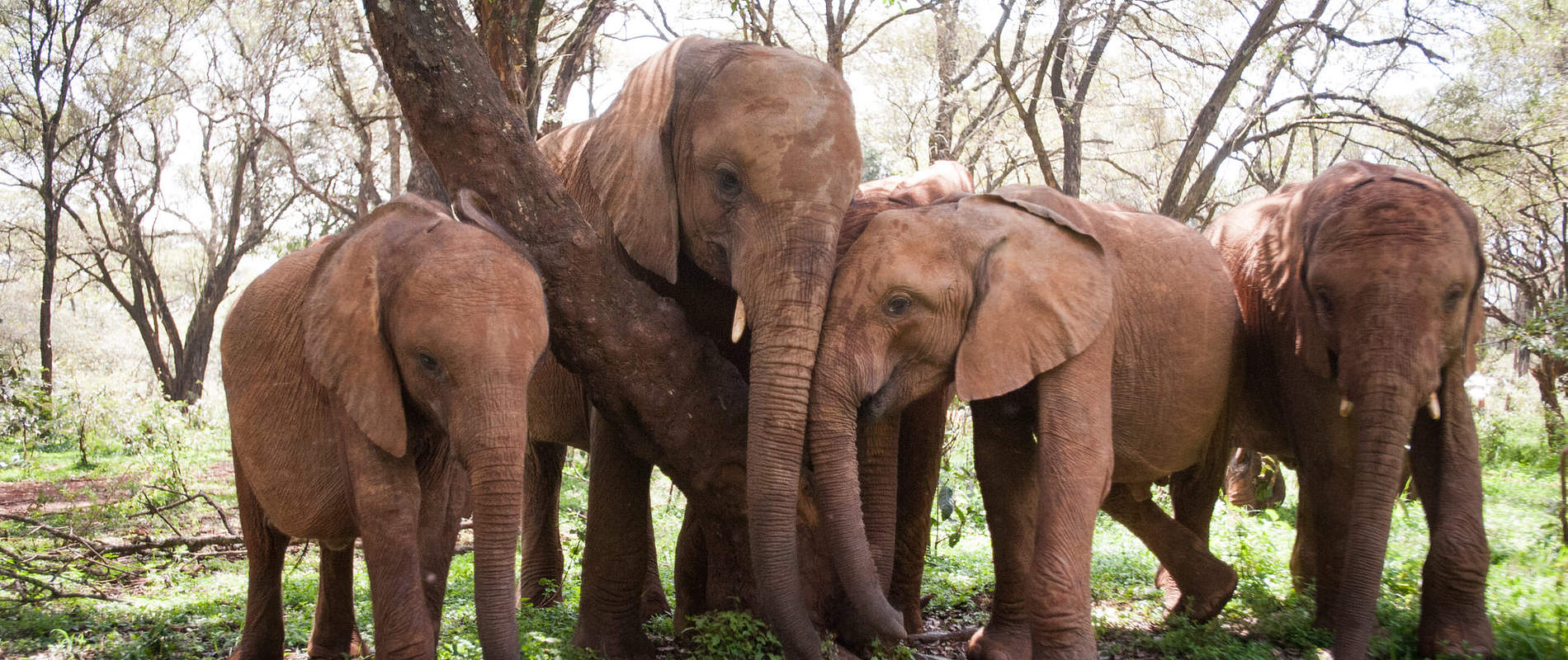It is with profound sadness and disbelief that we share the news that Maisha died on the afternoon of Saturday, 26th June. Her passing was wholly unexpected and we are still wrapping our minds around it. How do you put into words something that defies explanation? Closure can temper the pain of a cruel twist of fate, but with Maisha, we don’t have that. In nearly half a century of working with elephants, both wild and orphaned, we have never seen something like what unfolded with her.
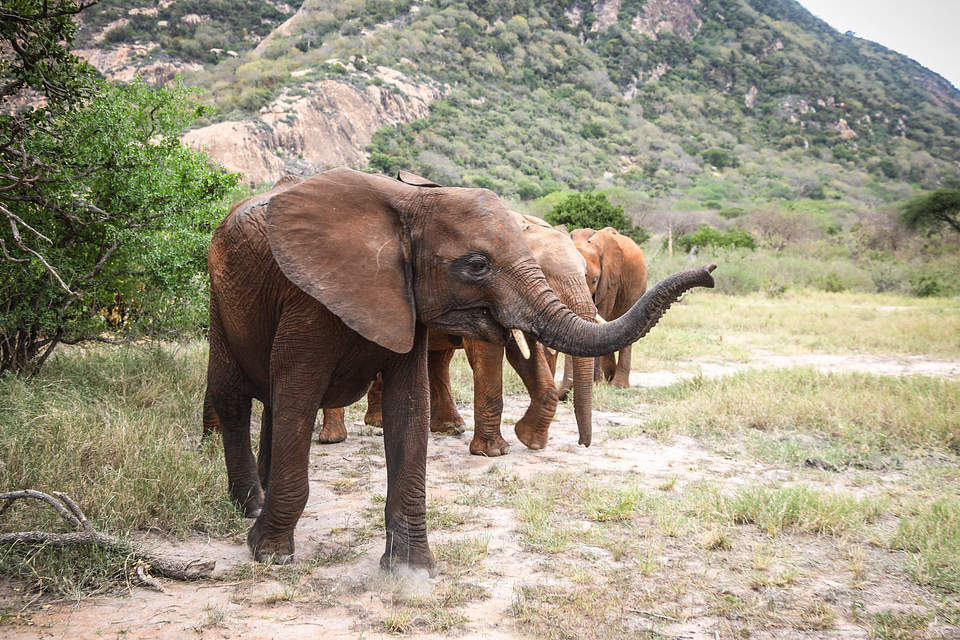
It began on Monday, when the Keepers noticed that Maisha’s front legs were stiff. At this point, there was no cause for concern: Something as innocuous as a tumble over a root or a particularly raucous mud bath can cause aches and pains. The team acted quickly, bringing Maisha back to the Ithumba stockades so she could recuperate under close supervision.
The next morning, however, the stiffness had spread to Maisha’s other legs. While this certainly heightened our concern, she was still feeding normally and didn’t exhibit any other symptoms. We wondered if perhaps she had been bitten by a snake, but there was no visible wound or targeted swelling. We ramped up the course of medications, hoping for the best but poised to escalate treatment.
Unfortunately, that proved necessary, for Maisha took a turn for the worse on Wednesday. Her jaw completely locked up and her entire body went rigid as her muscles spasmed, from trunk to tail. It left her unable to walk, lie down, drink, or chew. With a dose of Stresnil, she could loosen up sufficiently for a hobble down to the water trough, but then she would lock back up in a couple of hours or so. Throughout this mysterious decline, however, Maisha’s outward condition remained good. To see her standing in the stockades, one wouldn’t realise anything was amiss.
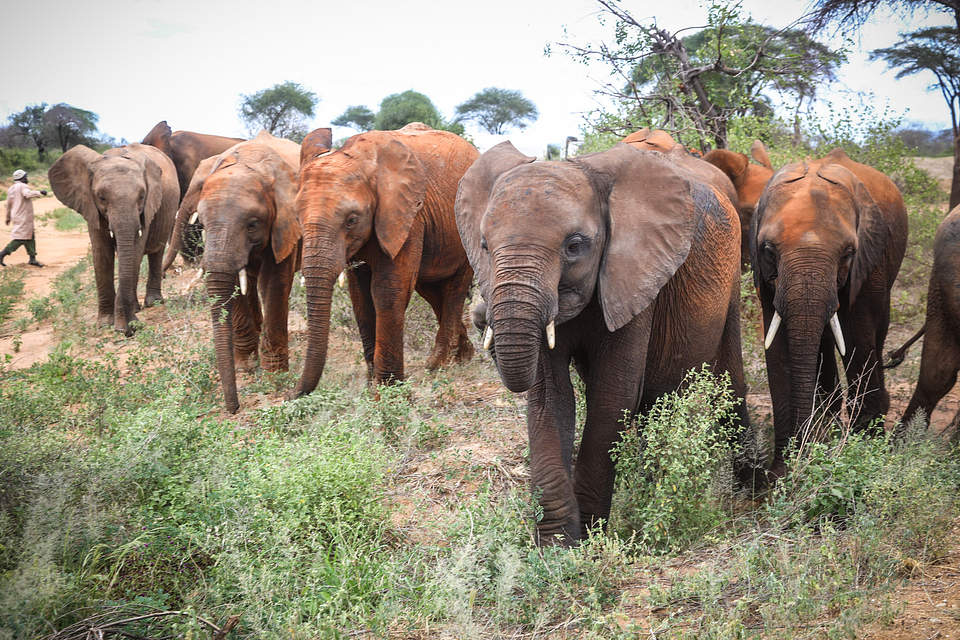
Maisha ensconced herself in the Ithumba orphan herd
A whole team was working around the clock for Maisha, near and far: KWS vet Dr Poghon and his assistant flew to Ithumba, where they remained in situ for the week. We also consulted veterinarians from Nairobi and South Africa. Combining our collective knowledge and experience, we tried to make sense of this situation, but no one had ever witnessed something like this before. Her symptoms were very similar to tetanus, but there has never been a recorded case of tetanus in an elephant and, perplexingly, there was no entry wound. Blood readings suggested she had a bacterial infection, but we couldn’t identify its source. On two separate occasions, we flew down an aircraft with medication, collected blood for analysing, desperate to leave no avenue unexplored.
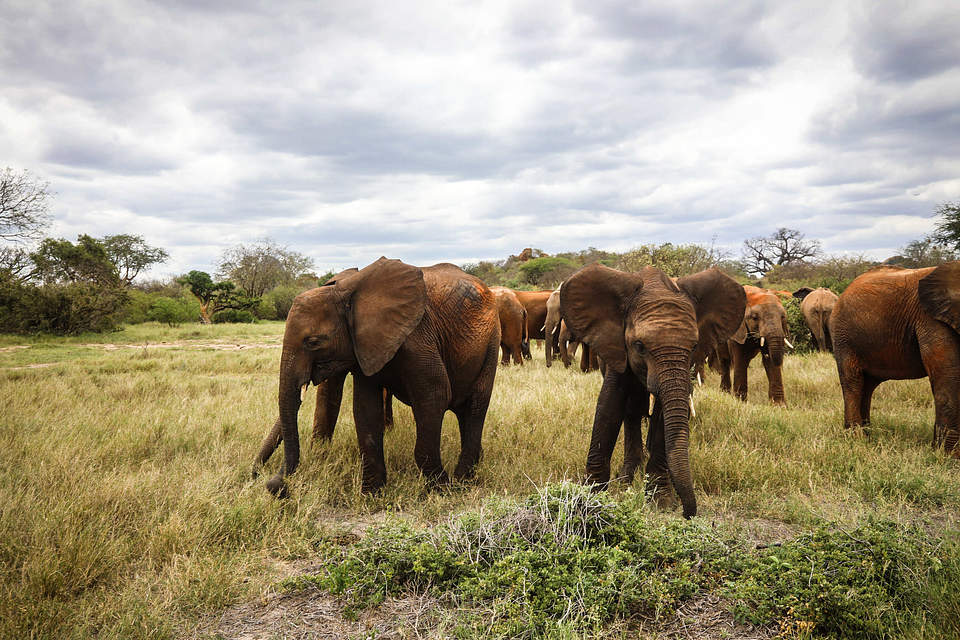
Maisha and Nabulu together in Ithumba
The other orphans were concerned about our little girl and showed their support through a chorus of reassuring rumbles. Nabulu, Maisha’s sidekick from their Nursery days, was especially attentive. Instead of joining the others out in Tsavo, we kept her back by the stockades, so she could check on her friend throughout the day. This was an important show of support for Maisha — and, of course, Nabulu wouldn’t have had it any other way: Her Keepers never left her side, day and night. Maisha, who has always cherished her Keepers, seemed to draw great comfort from their presence.

Maisha leading the Nursery herd
We battled on feeding Maisha smoothies, combinations of milk and porridge, milk with ground lucerne, and plenty of rehydration. She did collapse more from exhaustion but we took the opportunity to ply her with drips, and then after a good rest she was helped back up to a standing position. On Thursday afternoon, we thought we had a breakthrough. Three of Maisha’s legs unlocked marginally and she regained some flexibility in her trunk, which allowed her to move around a bit. Her jaw remained locked much of the time, but this incremental progress continued through Friday, leaving us hopeful that we were seeing a glimmer of light at the end of the tunnel.
Tragically, that wasn’t to be. On Saturday morning, Maisha collapsed again. The Keepers and vets placed her on fluids, but despite their very best efforts, at around 2 o’clock Maisha closed her eyes and stopped breathing. She passed quietly, surrounded by the human family she loved so much.
Maisha lived her life gently, but bravely. Her last week on earth was no exception: Despite the pain she must have been experiencing, she never appeared panicked. She put up a courageous fight, but ultimately, this mysterious affliction proved too great a hurdle to overcome.
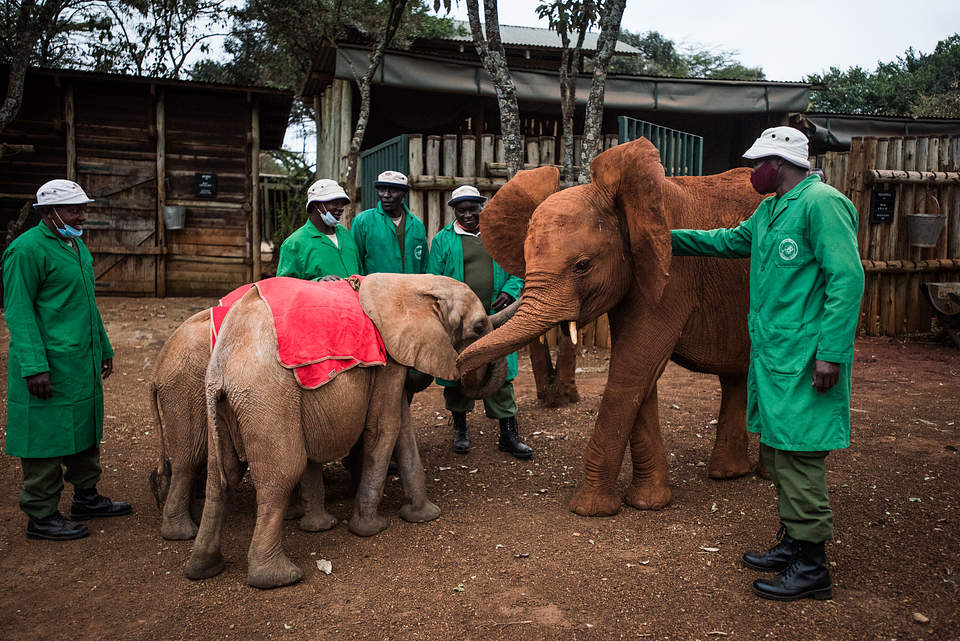
Welcoming Kindani, Kinyei and Bondeni to the Nursery
Daphne once said that raising orphaned elephants is a “cocktail of joy, tempered with a good dose of tears.” This week, the tears are flowing. Maisha had her whole life ahead of her, and we cannot begin to fathom why it ended in such a way. In her short time on earth, she touched lives the world over. Her nurturing presence shaped young orphans like Roho, offering them love and guidance at a time when they needed it most. We know our supporters, who have been such an important part of Maisha’s story from the very beginning, will feel her loss as keenly as we do.
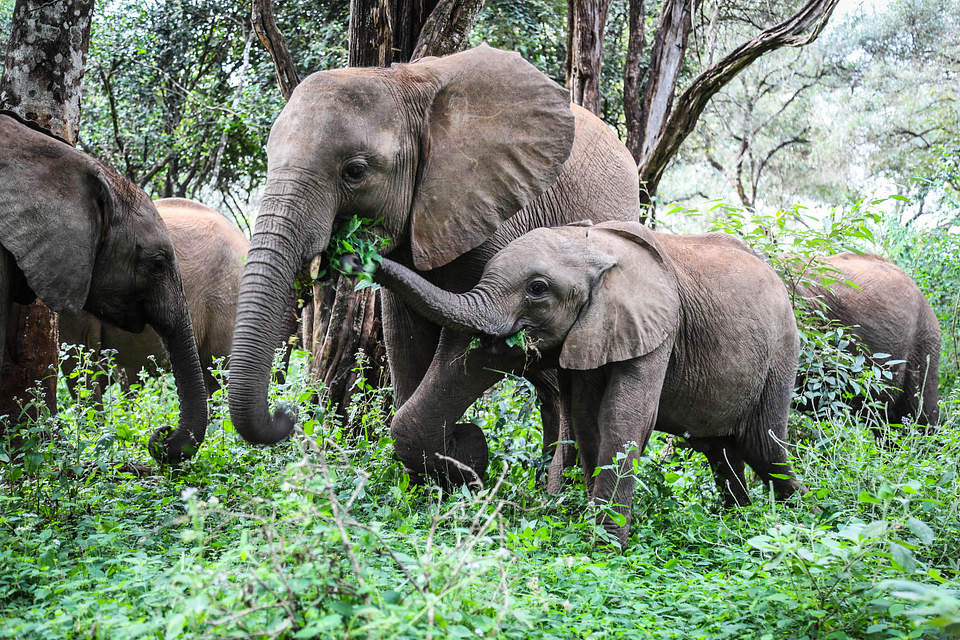
Maisha's nurturing presence shaped young orphans like Roho
To know Maisha was to know the embodiment of goodness. Now she is in the great beyond, reunited with the likes of Daphne and Luggard. For that we can be grateful, as we grapple with such a senseless loss. We are also left wondering what caused her mysterious decline, agonising over what could have been done differently. This is our burden to bear, and know that we don’t take it lightly. In Maisha’s honour, we will continue to dig deeper and research further to make sense of this devastating turn of events.
As we wade through this tragedy together, we hope you can memorialise Maisha with a smile. Maisha’s name is the Swahili word for ‘life’ — and full of life is how we will remember her. She had such joie de vivre, in her own, quiet way. Maisha was never the biggest showboat in the mud bath or the loudest trumpeter at the milk bottles, but she exuded compassion, kindness, and joy. She loved her life and, even more so, she loved the creatures she shared it with.
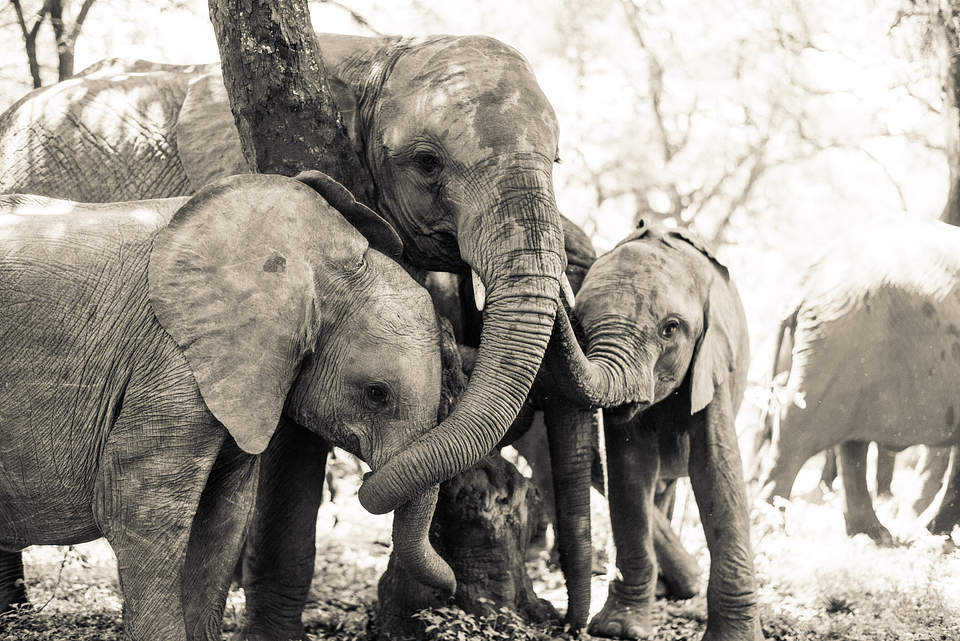
Maisha’s name is the Swahili word for ‘life’ — and full of life is how we will remember her
